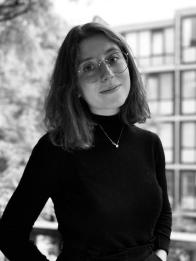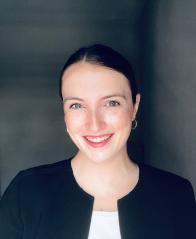Support NYU Law
- Degrees and Programs
- JSD Program

Visiting Doctoral Researchers
Visiting Doctoral Researchers are doctoral candidates enrolled in a doctoral degree program at another institution abroad who wish to benefit from spending one year of their research at NYU School of Law. They will be fully integrated into the JSD program as far as is relevant. The JSD Program invites between two to four individuals each academic year to contribute to the Visiting Doctoral Researcher position in the JSD Program.
The Visiting Doctoral Researchers are actively integrated into the Law School community through various academic and social programs, including an invitation to participate in the JSD Forum where they may present their research.
Benefits of Participation Participating in the Visiting Doctoral Researcher program will include the following benefits:
- Participation in all Law School events including those especially of the JSD Program
- Integration, as far as possible, into the activities and events of NYU School of Law's JSD program
- Workspace within the Law School. Please note that work space is not guaranteed; however, we will do our best to provide some work space if any is available to us
- Access to the NYU School of Law Library, including WestLaw and LEXIS
- An email account
The invitation to join the Law School as a Visiting Doctoral Researcher is also an invitation to a life-long relationship with the JSD Program at NYU School of Law, one that will continue to foster excellence in legal scholarship. If you are interested in applying, please view the program information and application instructions links.
Current Visiting Doctoral Researchers Academic Year 2024-2025

Tamara Grigoras
Visiting Doctoral Researcher Switzerland
Tamara Grigoras is a PhD candidate in international law at the University of Fribourg (Switzerland), supervised by Prof. Samantha Besson. Her research examines and theorizes the contribution made by international financial institutions to the making of customary international environmental law.
Tamara studied law at the Universities of Fribourg (BA) and Zurich (MA). She also holds an LL.M. degree in International Trade and Investment Law from the Amsterdam Law School, where she also worked as a research assistant.
While at NYU, Tamara aims to further develop her argument about international financial institutions’ law-making and explore the philosophical ramifications thereof. The title of her research project is: "International Law-Making by International Financial Institutions: The Case of Environmental Custom"

Megan Pfiffer
Visiting Doctoral Researcher Canada
Megan Pfiffer is a doctoral candidate at the University of Toronto's Faculty of Law with research interests in public law, and legal, political, and moral philosophy. She is also the managing editor of the University of Toronto Law Journal, and a co-editor of the third edition of Edward Elgar's Comparative Administrative Law. Her thesis explores the idea of justification in administrative law and will reframe contemporary debates on substantive review. Megan received her JD from Queen's University where she was awarded the Silver Medal in Law for achieving the second highest academic standing in her graduating class, as well as the Dean's Key Award for best embodying the signature values of Queen's Law. She then articled at a leading Toronto litigation boutique and clerked for Justice Rosalie Abella at the Supreme Court of Canada. Prior to joining the Faculty of Law, Megan completed the BCL at the University of Oxford with distinction.

Visiting Doctoral Researcher Singapore
Xuan W. Tay clerked at the International Court of Justice as a Judicial Fellow to the President, H.E. Judge Joan E. Donoghue. Xuan is a Fulbright Scholar at Georgetown University Law Center (L.L.M. (Dean’s List with Distinction), 2021-2022) and Valedictorian at the National University of Singapore, Faculty of Law (L.L.B. (Best Graduating Student, First Class Honors), 2015-2020). He is a recipient of, inter alia, the Lee Kuan Yew Gold Medal and the Chief Justice Prize. He has previously worked with the UN Office on Drugs and Crime and ASEAN, and is currently a doctoral candidate on a research scholarship with Adelaide Law School.
Xuan W. Tay's thesis is broadly concerned with the relationship between national narratives and international legal behavior. The social sciences recognize that narratives are central in shaping how individuals define the national interests, take decisions on foreign policy, and make sense of a nation-state’s place among sovereign equals. Contrastingly, the role national narratives play in motivating international legal behavior is not well-studied. This is peculiar, given that international law is awash in narratives. Xuan's thesis seeks to fill this gap, while inviting international lawyers to reflexively consider the degree to which our practice is informed by the stories we tell ourselves.
Xuan W. Tay's academic interests lies in the intersection between international law and foreign policy. In particular, he is fascinated with matters of global security, these including hybrid warfare, Law of the Sea issues, space law, armed conflict, and influence operations. Xuan is also concerned with matters of race, feminism, and sexuality in the international law discipline. He is an avid fan of poetry, pretentious movie flicks, and all things by the beach.”
© 2024 New York University School of Law. 40 Washington Sq. South, New York, NY 10012. Tel. (212) 998-6100

IMAGES
VIDEO